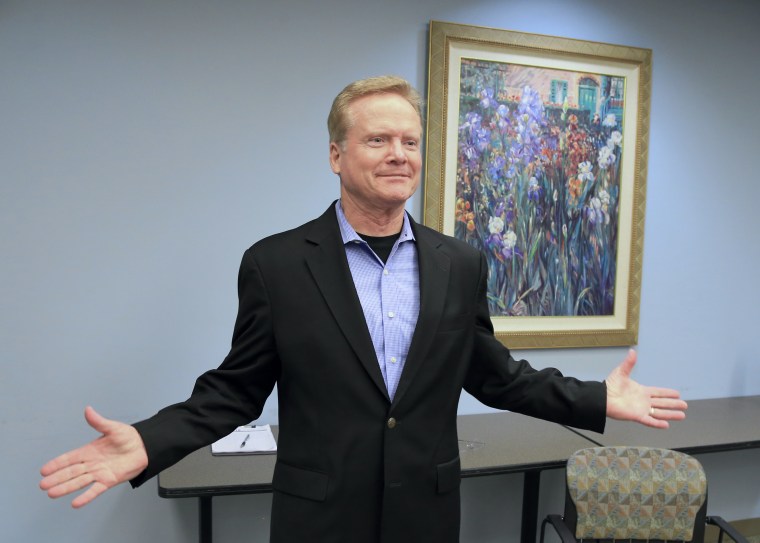When former Sen. Jim Webb (D-Va.) launched his longshot presidential campaign 11 days ago, some skepticism was in order. Anytime a national candidate kicks off a campaign with a lengthy, poorly formatted blog post, published on the eve of a holiday weekend, it's bound to raise questions about the seriousness of the enterprise.
As msnbc's Alex Seitz-Wald reported, those questions got a little louder yesterday.
Democratic presidential candidate Jim Webb said his party has "moved way far to the left" and is "not my Democratic Party in and of itself" in an interview with "Fox News Sunday." [...] "I believe we can bring a different tone to the Democratic Party," Webb told Fox News' Bret Baier. "You're right, the party has moved way far to the left. That's not my Democratic Party in and of itself. We need to bring working people back into the formula."
Here's a tip for Democratic presidential candidates: try to avoid going on Fox News and criticizing your party's ideology. It might help in the primaries.
Part of the problem is that Webb's critique is just factually wrong. For one thing, Democrats continue to champion a policy agenda focused on the interests of working people. For another, when the former senator says the party has "moved way far to the left," he should probably be more specific about his concerns. Because on nearly every major issue, the Democratic position is largely in line with the American mainstream's position -- which is generally a good thing for political parties, not a problem to be avoided.
If Webb wants to argue that the country has moved to the left in the Obama era, he'd be on firmer ground, but again, the Virginian needs to explain why this disappoints him.
In the same interview, Webb added, "Next Saturday, in the far southwest of Virginia, there's going to be a medical clinic, a remote area medical clinic to take care of people who don't have medical insurance. It's out at the wise county fairgrounds. I hope Fox will go down there and take a look at it. They're going to take care of about 6,000, at least, if historical records hold, people with no medical care. They'll pull 3,000 teeth. And these are people forgotten by both parties. And I think they need a voice."
But again, these people haven't been forgotten by both parties. Democrats have championed the Affordable Care Act that's intended to provide coverage to the exact people Webb is concerned about.
When the conversation turned to Donald Trump, Webb denounced "divisive, inflammatory rhetoric," but he quickly added a both-sides-do-it addendum: "We've seen from the liberal side as well, we've seen this kind of rhetoric as it goes to Southern white cultures."
It was an informative comment. Webb sees the modern Democratic coalition as incomplete -- he remembers when white, working-class Southerners voted Democratic, and the former senator wants to be their candidate. He believes he can appeal to these voters with a combination of economic populism and cultural conservatism, including an embrace of, as Webb put it, "Southern white cultures."
The problem, of course, is that these same voters are now die-hard Republicans in the GOP's most reliable region. Webb is running for the Democratic nomination while appearing on Fox, making appeals to the other party's base.
It's less a platform for winning Democratic support and more a rationale for leaving Democrats altogether. When Webb said yesterday, "That's not my Democratic Party," it was easy to imagine the "I didn't leave the party; my party left me" rhetoric on the horizon.
